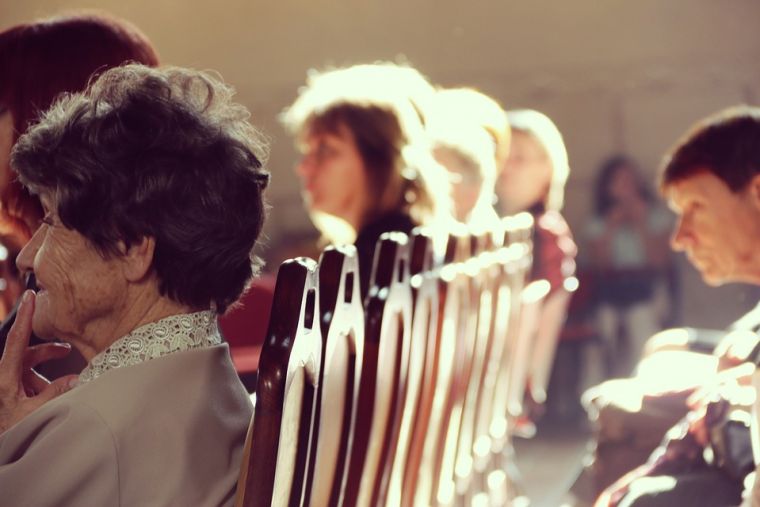Can your church adopt a care home? How elderly people are gaining friends via this Christian charity

A colourful lady in her 80s who loves nature and cycling, Margaret has dementia. She lives in a care home and spends most days either alone in her room, or pacing the corridors with her zimmer frame. She never married and has no family or friends who visit. She is confused about why she is living there, so feels trapped and often shouts at the care home staff, which adds to her sense of isolation and loneliness. Beneath her stern frown is a bewildered lady seeking reassurance and connection.
Margaret is one of 405,000 older people living in care homes across the UK, and research suggests that they are twice as likely to feel severely lonely as older people living at home. One resident described it as 'being alone in a crowd'. They are some of the oldest and frailest members of society, and an estimated 80 per cent have dementia or significant memory loss.
I believe they are close to God's heart. When God sees Margaret, he sees beyond her dementia, and confusion. He sees his precious daughter who he loves dearly. Motivated by God's love for the frail elderly, and determined to see change for Margaret and others like her, I set up Care Home Friends in 2015. I train volunteers to spend time and build friendships with care home residents, to bring colour into what can be a monochrome existence.
Care home residents are some of the oldest and frailest members of our society, yet often they get forgotten about. There seems to be a general belief that because they are now living in a care environment, that all their needs for social interaction are being met. This is not the case.
One of our main projects at Embracing Age is Care Home Friends, where we train volunteers to spend time and build friendship with care home residents.
There are 17,500 care homes across the UK and over 50,000 churches. Our vision is to see every care home adopted by a local church with trained volunteers befriending and supporting residents. Together we could make a huge difference in the lives of care home residents.
We have over 50 volunteers across all the care homes in the London Borough of Richmond. Last year, we won the Cinnamon Project Lab and have spent the year in an incubation process with them exploring how we can replicate Care Home Friends nationally.
What the project has meant for Margaret, for example, is that she now has a friend who visits every week. They laugh together, look at photos of nature and talk about Margaret's love of cycling and birds.
Valerie, 92, is another resident who has a care home friend. She didn't feel mentally ready to move into a care home, but needed to for physical reasons, and felt cut off and in need of stimulation from the outside world. She painted a picture to describe how she felt – alone in a storm and not knowing how to get out.
Now, Valerie's Care Home Friend accompanies her on walks along the River Thames. She describes how they have lovely chats: 'We talk about things that we wouldn't talk about in here. I feel like I am out in the normal world talking about different things, I look forward to his visits all week.' Valerie says she couldn't do without the volunteer she has from Care Home Friends and says that he has 'filled the gap' and 'transformed my life'.
Then there is Alfred, an army officer in World War Two, who is confined to a wheelchair. A care home friend spends time with him each week giving him a manicure and hand massage, which he really looks forward to. He was asked why he like it so much and tears welled up in this dignified gentleman's eyes as he explained, 'It's the only touch I get'.
Care Home Friends want to reach out to others, to show them that they matter, that they are not overlooked and ignored, but rather respected, valued and loved.
I am keen to hear from other churches that would like to adopt their local care home. It's very easy. All it needs is someone willing to gather a small team of volunteers, even just two or three. We will give them the training and support they need to train their own volunteers, and build a relationship with a local care home.
Again and again, I am drawn to the passage in the Parable of the Sheep and the Goats in Matthew (25:40), in which Jesus says: 'whatever you did for the least of these brothers and sisters of mine you did for me'.
For more information, visit www.embracingage.org.uk and www.carehomefriends.org.uk.











